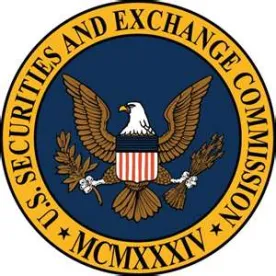On December 17, 2014, the SEC’s Advisory Committee on Small and Emerging Companies (the “Committee”) held its first meeting in over a year. The transcript and an archive of the webcast of the meeting are not yet available, but will be posted on the SEC’s website in the near future.
The main purpose of the meeting was to provide the SEC with the Committee’s thoughts on whether the current definitions for individual accredited in Regulation D should be amended. These definitions – that an individual has had an annual income of at least $200,000 (or at least $300,000 if determined jointly with such person’s spouse) for the past two years and has a reasonable expectation of an income of at least $200,000 in the current year, or a net worth (either individually or jointly with such person’s spouse) of $1 million exclusive of the positive value of such person’s primary residence – have been around since Regulation D was adopted in 1982 and (with the exception of the exclusion of one’s primary residence from the net worth test) have not been amended. The main reason why the SEC sought input on this issue at this time was that Dodd-Frank requires the SEC review the definitions for individual accredited investors in Regulation D at least once every four years.
The Committee heard presentations by three of the Commissioners, including Chair White, as well as from AARP and the Angel Capital Association. The members of the Committee also discussed the philosophy behind the individual accredited investor definitions – that the wealthy should be able to fend for themselves and not need the protections provided by registration under the Securities Act for offerings of this nature. The Committee considered whether the people who would meet these standards today were in fact able to fend for themselves, and whether the minimums were “right” at the time Regulation D was adopted and whether they continued to be “right” to this day. In the end, the general view of the members of the Committee was that definition “ain’t broke,” so we shouldn’t try to fix it. The Committee thought it wise, however, to add some sort of inflationary adjustment based on the Consumer Price Index to the definitional minimums (as was actually considered, though not implemented, by Congress in connection with passing Dodd-Frank). If adopted by the SEC, this would mean that each year there would (probably) be a tick up (which would be slight under current inflationary conditions) in the definitional minimums – which also means that accredited investor certificates used in connection with Reg D offerings will need to be amended each year to make sure they are up to date.
In addition, the members of the Committee agreed that a new type of individual accredited investor should be created: one whose education or other qualifications makes him or her “sophisticated” and able to fend for himself or herself despite not meeting the income or net worth requirements of the current definitions. For example, it makes sense that a person who is a CFA and advises wealthy people on what private investments to make would have the intellectual ability and experience to be able to fend for himself or herself when it comes to making his or her own private company investments.
In addition to these types of definitions – which focus on an individual’s qualifications – there could be “transactional” exemptions under Regulation D for certain types of private placement structures. These will be discussed in a future posting.



 />i
/>i

